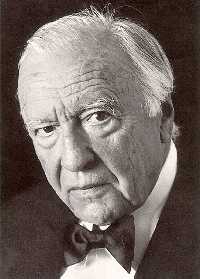















PHIL 419.500: Current Continental Philosophy
Spring 2003, Dr. Stephen H. Daniel
Monday & Wednesday 4:10-5:25
Bolton Hall 003








Current Continental Philosophy examines the ideas of influential European philosophers in the second half of the 20th Century. Movements studied include Neo-Marxist critical theory, philosophical hermeneutics, psychoanalytic structuralism, French feminism, deconstruction, poststructuralism, postcolonialism, and postmodernism.
Prerequisites: At least junior classification or approval of instructor.
Reading assignments are based on a forthcoming book by the instructor. The book includes thirty-one readings from twenty key thinkers. Students can pick up free copies of the book in the Philosophy Department main office (Bolton 314).
Topics and persons to be studied:
| Class date | Topic | Reading Assignment (page #s) |
| Jan. 13 | Introduction | vii-ix, 1-10 |
| Jan. 15 | Marx, Freud, Nietzsche | 10-20 |
| Jan. 20 | (No class) | (M. L. King Holiday) |
| Jan. 22 | Lukács | 23-41 |
| Jan. 27 | Horkheimer | 42-57 |
| Jan. 29 | Benjamin | 58-68 |
| Feb. 3 | Adorno | 69-83 |
| Feb. 5 | Gadamer | 84-105 |
| Feb. 10 | Habermas | 106-26 |
| Feb. 12 | Althusser: Marxism and Humanism | 127-38 |
| Feb. 17 | Althusser: Capital | 138-53 |
| Feb. 19 | Test 1 | |
| Feb. 24 | Saussure | 157-72 |
| Feb. 26 | Lacan | 173-92 |
| Mar. 3 | Irigaray | 193-218 |
| Mar. 5 | Kristeva | 219-41 |
| Mar. 17 | Levinas | 242-60 |
| Mar. 19 | Derrida: End of the Book | 261-77 |
| Mar. 21 | Derrida: Structure/Afterword | 277-302 |
| Mar. 26 | Cixous | 303-20 |
| Mar. 31 | Test 2 | |
| Apr. 2 | Deleuze: Difference & Repetition | 323-34 |
| Apr. 7 | Deleuze: Anti-Oedipus | 334-52 |
| Apr. 9 | Foucault: Discourse on Language | 353-76 |
| Apr. 14 | Foucault: History of Sexuality, vols. 1 & 2 | 376-92 |
| Apr. 16 | Postcolonialism & Spivak | 393-411 |
| Apr. 21 | Bhabha | 412-27 |
| Apr. 23 | Lyotard | 428-49 |
| Apr. 28 | Baudrillard | 450-68 |
| May 5 (Monday) | Final exam (or paper due), 3:30 p.m. |
Grades/Tests
The semester grade is based equally on three in-class essay-format tests (including the final exam). In place of the final test/exam, you can write a ten-page research paper (see below). At least twice during the semester you have to write a two-page summary of the daily reading. These summaries add extra points to a test score: A=2 1/2 pts, B=1 1/2 pts, C=1/2 pt. Summaries must be turned in at the beginning of the class in which the readings are discussed. Failure to submit summaries will result in -5 pts each. (For more on how to write the summaries, see below.) In addition to the two required summaries, you can write as many other summaries as you want for extra points. There are 25 days when we have readings, so you have a chance to add up to 62 1/2 points to one of your test scores. There is no grade for attendance, but if you miss a class it usually affects I grade your answers on tests. If you miss a test, contact me before the next class meeting to take a make-up exam.
Students with disabilities are guaranteed a learning environment that provides for reasonable accommodation of their disabilities. If you believe you have a disability requiring accommodation, please contact the Department of Student Life, Disability Services, Koldus Bldg. 126, or call 845-1637.
Information on the definitions and sanctions regarding cheating and plagiarism can be found at http://student-rules.tamu.edu/rules20.htm.
Guidelines for the Summaries
Summaries should address the question: What are the main points discussed in the assigned readings? Do not bother with biographical or historical remarks about the philosopher: focus on the arguments he or she presents. To understand the readings better, consult secondary sources such as the following:
Collections of an author's writings (e.g., A Kristeva Reader) provide introductions to selected works, and books devoted entirely to a thinker often describe in detail points in the essays we study. In your summaries make sure to indicate exactly where your secondary sources address those issues. Do this by parenthetically citing your source and then give full bibliographic data at the end of your summary. For example, if you are summarizing Derrida's "Afterword" and you want to clarify the meaning of differance by referring to David West's discussion of Derrida in the book mentioned above, you could simply write: "Differance is the act of alluding to something while at the same time attempting to erase the very gesture by which the allusion is made (West, 136)" and then give the full citation at the end of your summary. You thus make use of West without having to say "as David West says..." You only have two pages to summarize the points of the essay(s) we are studying that day, so use your words economically. Likewise, use paper wisely: don't turn in a page with one or two lines at the top; squeeze them in on the previous pages by changing the margins to accommodate them.
Remember: summaries should be limited solely to the points raised in the readings. They are not intended as opportunities for you to say how you agree or disagree with the author. Avoid statements like "For centuries philosophers ..." Finally, make sure you cover all assigned pages, especially if the assignment covers more than one reading or more than one philosopher.
Guidelines for Optional Papers
No one is required to write a research paper for this course. If you choose to substitute a ten-page paper for the final exam, please talk to me about your choice of topic and feel free to submit early drafts so that I can comment on them and provide feedback for how to improve them. The paper may deal with a specific topic developed by one thinker or be a comparison of two thinkers on a topic. The selection of a paper topic will emerge after you have read through a good bit of secondary material. Only after you have seen how scholars treat major points of contention can you develop a feel for how to resolve the issues in your paper.
The paper should have the following structure:
![]()
 Send Dr. Daniel a message: sdaniel@people.tamu.edu
Send Dr. Daniel a message: sdaniel@people.tamu.edu
Office: Bolton 302 B
Office hours: Monday & Wednesday 2:00-4:00
Phone: 845-5619 (office), 846-4649 (home)
Email: sdaniel@people.tamu.edu
Course Website: http://people.tamu.edu/~sdaniel/419sy03a.html